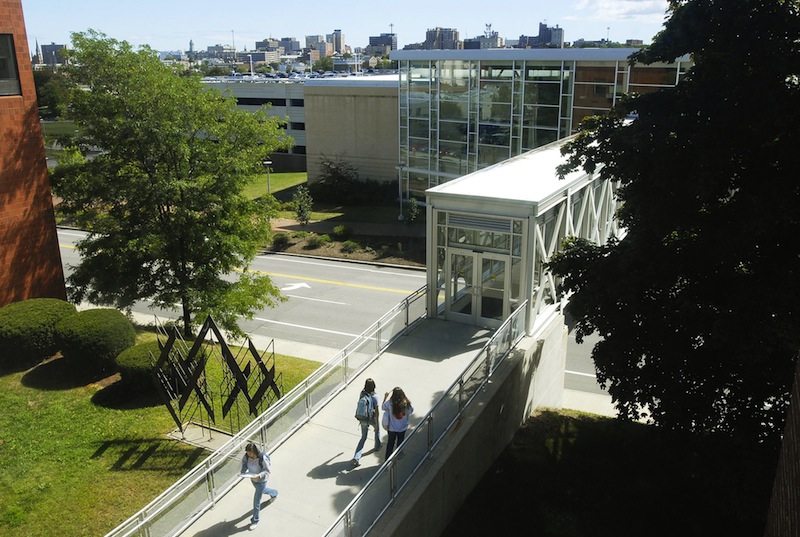I’d like to congratulate Janet Mills on becoming Maine’s governor and on her inspiring inaugural address. Having lived in Maine for 32 years now — I came to teach at the University of Maine — I find it reassuring to hear her embrace real Maine values of tolerance, compassion, civility and environmentalism.
I ask that, as time and opportunity allow, she devote more time than her recent predecessors have to choosing nominees to the University of Maine System board of trustees. Not just Gov. Paul LePage, and not just other Republican governors, have failed to give the board of trustees the respect it deserves in making nominations in past decades. Yet this is the governing body for much of public higher education in Maine, and its policies affect tens of thousands of Mainers and their families. (I don’t know enough to comment on the governing boards of either the Maine Community College System or Maine Maritime Academy.)
This is not, let me stress, a criticism of any or all trustees, past and present alike. I am sure that most take their responsibilities seriously in what is, of course, a voluntary post. But the absence from the board of any faculty members or, for that matter, of anyone with experience in higher education automatically isolates the trustees from academic life at the grass roots of the system’s seven campuses.
One wonders how current trustees would feel if the top management of their businesses allowed crucial policy decisions to be made by persons devoid of any knowledge or experience of their respective enterprises. “Sounds crazy, no?” as Tevye asks in “Fiddler on the Roof.”
Yet the marginalization of system faculty — and staff — has only increased in recent years as the trustees’ powers have grown. Crucial decisions are made ever more behind closed doors, with faculty and staff conveniently left out of the process when it matters. All public trustee decisions are unanimous. The trustees’ recent revised and narrowed policy on free speech is a prime example.
As things stand today, no system campus president or even the system chancellor can take a position on, say, climate change — and probably on motherhood and apple pie, too! One might believe that this represents the system’s supposed political neutrality. Nothing could be further from the truth. The system is avowedly political. The deliberate absence of a policy on allowing political candidates to serve on the trustees while running for office invalidates any claim of neutrality. Hence, current trustee and recent Republican gubernatorial candidate Shawn Moody was allowed to remain on the board throughout his campaign.
Moody is a fine citizen and an obviously successful businessman. Character is not the issue. But if a controversy had arisen before the trustees about climate change, his repeated denial of human-caused climate change could have affected a curriculum policy decision or two. I don’t imagine that this could happen in Maine, but faculty and staff members in, say, Oklahoma pushing for wind energy and solar power in their teaching and research could be penalized. Oklahoma already imposes special taxes on those using or wishing to use solar power.
Finally, one cannot depend upon the Maine Senate to delve into the backgrounds of the prospective trustees whom they are asked to approve. And neither can one depend on the appropriate House and Senate committees to do any better. Admittedly, Maine legislators have only so much time to devote to public higher education. But the common attitude, as I have seen from my mostly futile communication efforts with my local legislators, is a refusal to “micromanage” the system, as if the choice were really between that and “hands off” entirely. That is a false choice. In many other states, legislators live up to their fiduciary responsibilities regarding public higher education far more so than in Maine.
I plead with Gov. Mills to provide the Maine Senate with candidates for either initial appointment or reappointment to the University of Maine System Board of Trustees who respect system faculty and staff and who grant their representatives a real place at the table.
Howard Segal is a professor of history at the University of Maine.
Send questions/comments to the editors.



Success. Please wait for the page to reload. If the page does not reload within 5 seconds, please refresh the page.
Enter your email and password to access comments.
Hi, to comment on stories you must . This profile is in addition to your subscription and website login.
Already have a commenting profile? .
Invalid username/password.
Please check your email to confirm and complete your registration.
Only subscribers are eligible to post comments. Please subscribe or login first for digital access. Here’s why.
Use the form below to reset your password. When you've submitted your account email, we will send an email with a reset code.